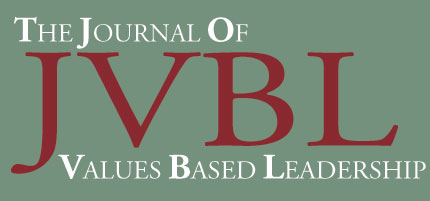- TABLE OF CONTENTS
Letter from the Editor
Elizabeth Gingerich, J.D., Editor, Valparaiso University, Valparaiso, IndianaThe Making of a “Philanthropreneur”
Trevor Field and Mark Melman, Playpumps International, Johannesburg, Africa“Be mindful of taking care of yourself without excesses.” In the case of Playpumps® International, an NGO based in Johannesburg, South Africa, coupling a not-for-profit with a for-profit company produced the needed incentive to bear truth to the idiom that one person, one simple idea can really change the world. Trevor Field and his partner, Mark Melman, former executives in the outdoor advertising industry, have done just that. With the invention of the PlayPump® water system, government agencies, NGOs and for-profit business have converged to address the disturbing reality that over one billion people lack access to clean water. According to Field, “I remember when I first looked at this water pump; I could never imagine that this is something that could possibly change the world. I remember when I came up with this idea and everyone was laughing. They’re not laughing now.”
Dynamic Leadership: Toolbox for the Values-Based Entrepreneur
Chun Guo, Sinéad G. Ruane, Alexandra Galli-Debicella, Phuong Anh Nguyen Dr. Charles C. Manz, Isenberg School of Management, University of Massachusetts, AmherstFour entrepreneurship models are proposed which lend guidance in the development of a business, from birth to exit, each examining ways to maintain the business founder’s initial vision and to continue to infuse values and ethical decision-making at each stage of development.
Capitalism Revisited: The Interplay of Motivation, Inspiration and Risk
Duncan Goose, CEO, Global Ethics Limited, Founder “One” Water Co., London, UKBusiness leaders who have effectively communicated their values by undertaking substantial philanthropic endeavors made fiscally possible through their own business successes, labors and investments, appear to all share a common thread. Influential social, environmental, work and religious backgrounds are studied and “epiphanal” experiences explored.
Workplace Bullying and Ethical Leadership
David C. Yamada, J.D., Suffolk University Law School, BostonIn order to increase business productivity, benefit packages and other financial incentives might not be adequate. Rather, the focus upon common respect for — and decent treatment of — all workers is discussed, with primary emphasis given to the 7 endemic workplace problem of worker harassment. Simple courtesies, genuine team and individual service acknowledgement, and the dismantling of a counterproductive, hierarchical worker system, often lead to increased productivity, congenial relationships, and a happier and healthier worker.
Principles for Accountable Leadership — The AA1000 Series
Daniel Waistell Standards and Related Services Manager, Accountability London, UKAuthor Daniel Waistell, Standards Manager of London-based AccountAbility, has provided the most recent benchmarks of identifying stakeholders for businesses to pursue greater sustainability in their respective operations. These standards are often coupled with world protocol reporting guidelines, including Global Reporting Initiative headquartered in Amsterdam (a United Nations-based program voluntarily used by the majority of Fortune 1000 companies as well as myriad small and medium enterprises). Waistell demonstrates the need for more transparency in business operations and reporting activities to achieve greater accountability for a wider array of non-traditional stakeholders.

